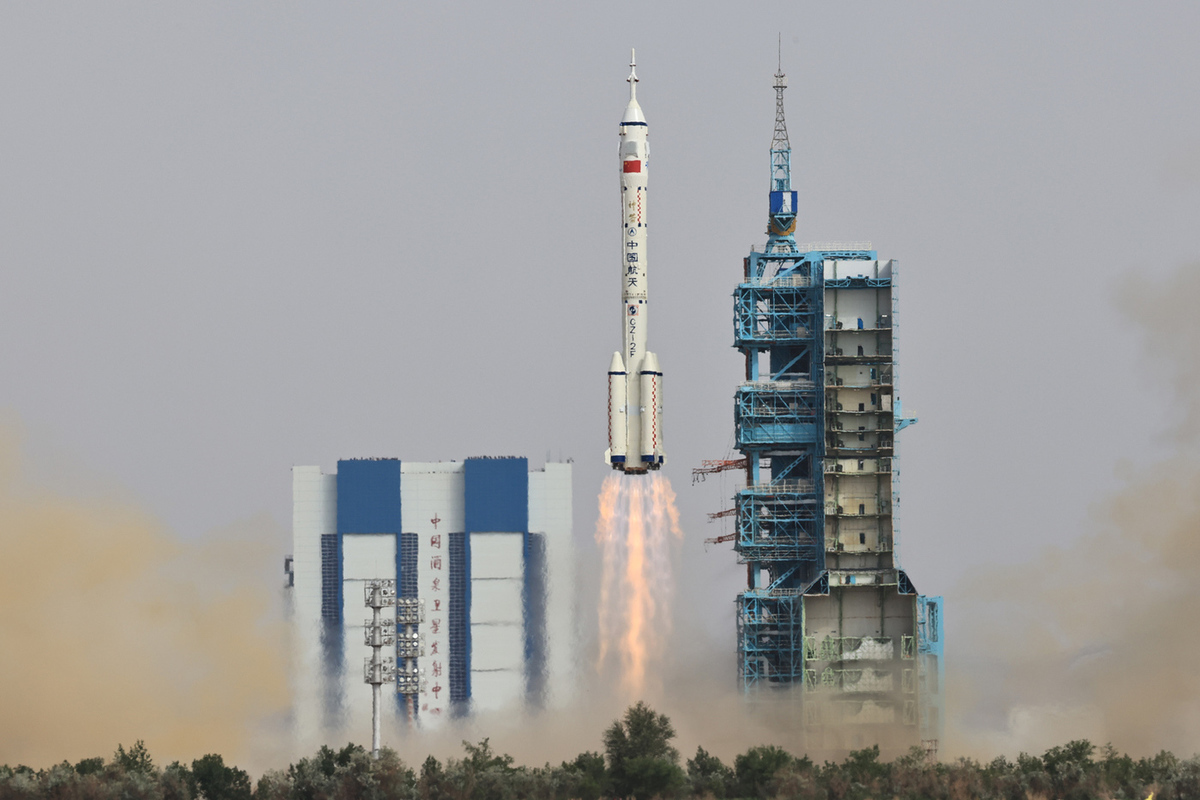China reveals plans to send humans to the moon
[ad_1]

“Taikunauts” from the Celestial Empire will go on a lunar expedition by 2030
China has shared plans to send astronauts to the moon by 2030. Chinese officials on Wednesday released new details about their plans for a manned lunar mission, amid attempts by China to become only the second country in the world to send citizens to the moon.
Zhang Hailian, deputy chief engineer of the China Manned Space Agency (CMSA), unveiled the preliminary plan at an aerospace summit in Wuhan on Wednesday, state-run Xinhua news agency reported.
The mission, expected to take place before 2030, is part of a project to build a lunar research station, CNN reports. According to Zhang, she will study how best to build the facility, as well as carry out lunar exploration tasks and other experiments.
Two boosters will send a lander to the lunar surface and a manned spacecraft into lunar orbit before they dock with each other, according to China’s state-run Global Times. After docking, the Chinese astronauts (or, as they are known in China, taikunauts) aboard the spacecraft will enter the lander, which is used to descend to the lunar surface.
While on the moon, the expedition members will collect samples and conduct “scientific research” before heading to the lander and reuniting with the spacecraft waiting in orbit to take them home to Earth, reports the Global Times.
To prepare for the mission, Chinese researchers are busy developing all the necessary equipment, including lunar space suits, manned lunar rovers, manned spacecraft and moon landing vehicles, Xinhua reports.
State media reports did not say exactly how many astronauts China plans to send to the moon.
The lunar mission is the latest in China’s quest to advance its space program, which has seen several breakthroughs in recent years.
As CNN notes, China was late to the space race—it only sent its first satellite into orbit in 1970, by which time the United States had already landed an astronaut on the moon—but Beijing is quickly catching up.
So, in 2013, China successfully landed a lunar rover on a natural satellite of the Earth, becoming only the third country to do so. At the time, Chinese leader Xi Jinping said, “The space dream is part of the dream to make China stronger.”
Under the leadership of Xi Jinping, China has spent billions on its ambitious space program. Although there is no official data on Beijing’s investment in space exploration, consulting firm Euroconsult estimated it at about $5.8 billion in 2019.
That year, China sent a lunar rover to the far side of the moon, the first time in history. Then, in 2020, it became only the third country to successfully collect rock samples from the moon.
China has also spent the past few years building its own Tiangong space station, which was completed in November. The station is only the second active orbital outpost along with the International Space Station (ISS), which has long been barred from Chinese astronauts due to US political objections and legal restrictions.
But the ISS is expected to cease operations in 2030, which could leave Tiangong as the only remaining outpost in space, CNN notes. China sought to open its station for cooperation with international partners, including through joint experiments with other countries.
[ad_2]
Source link








